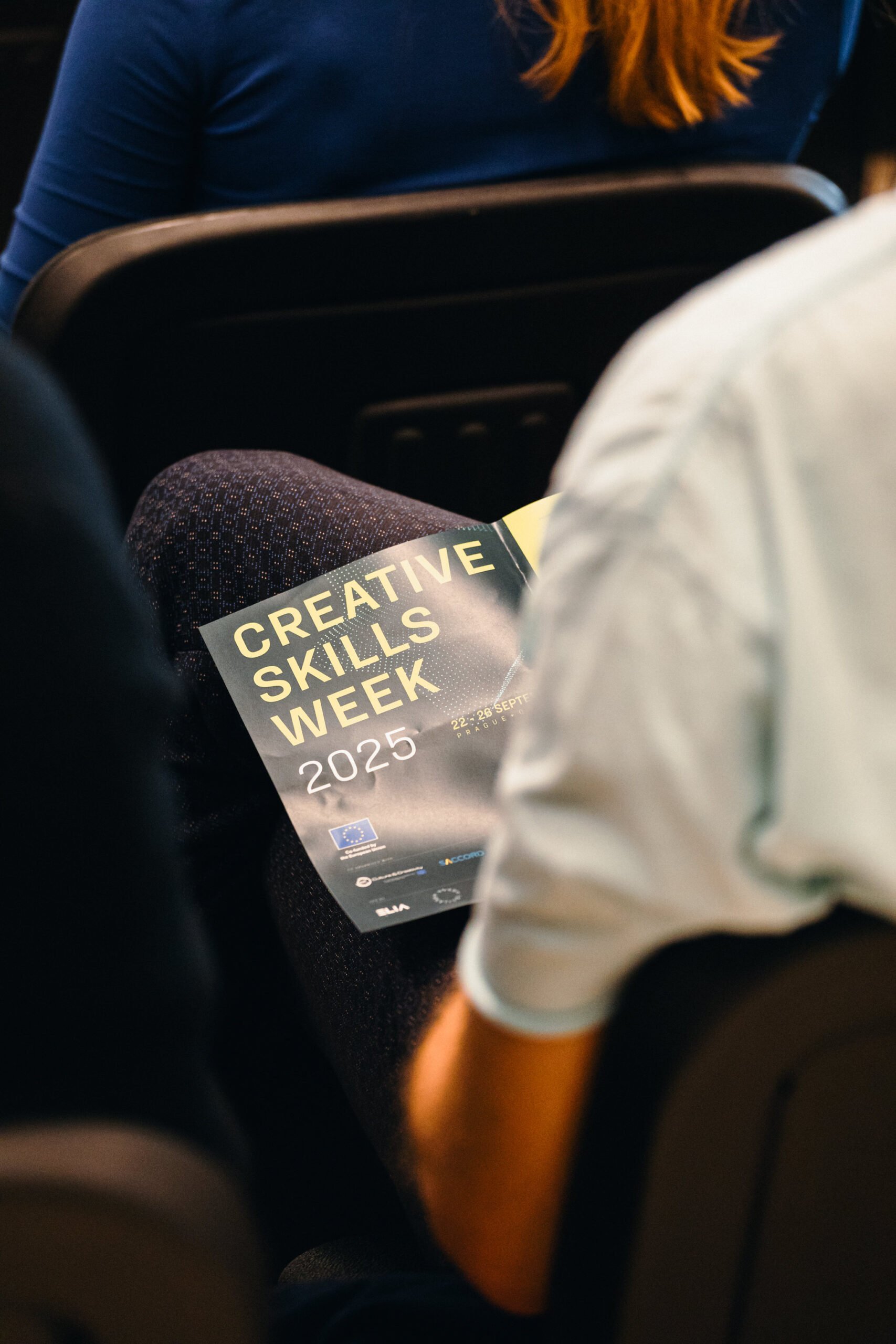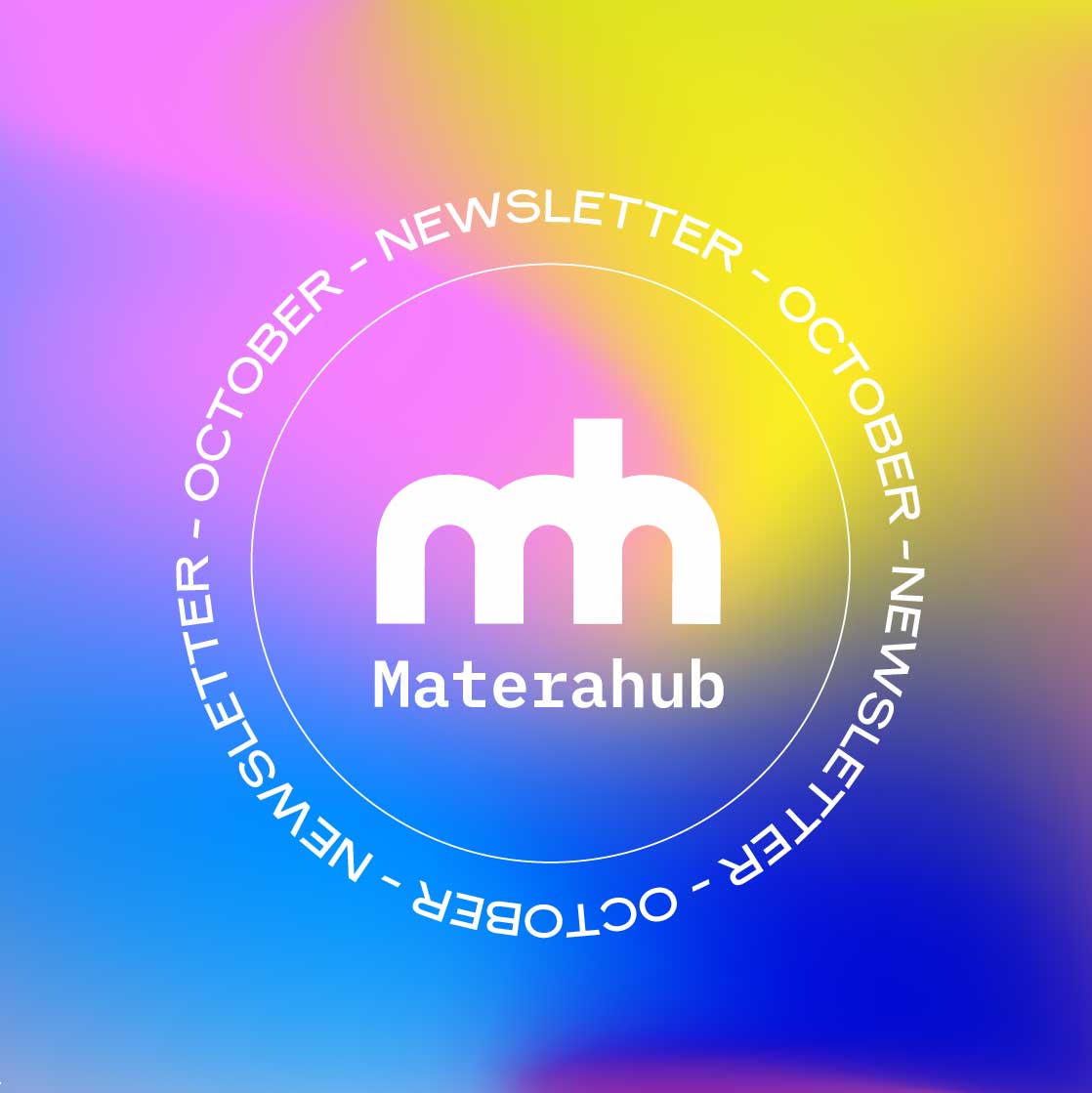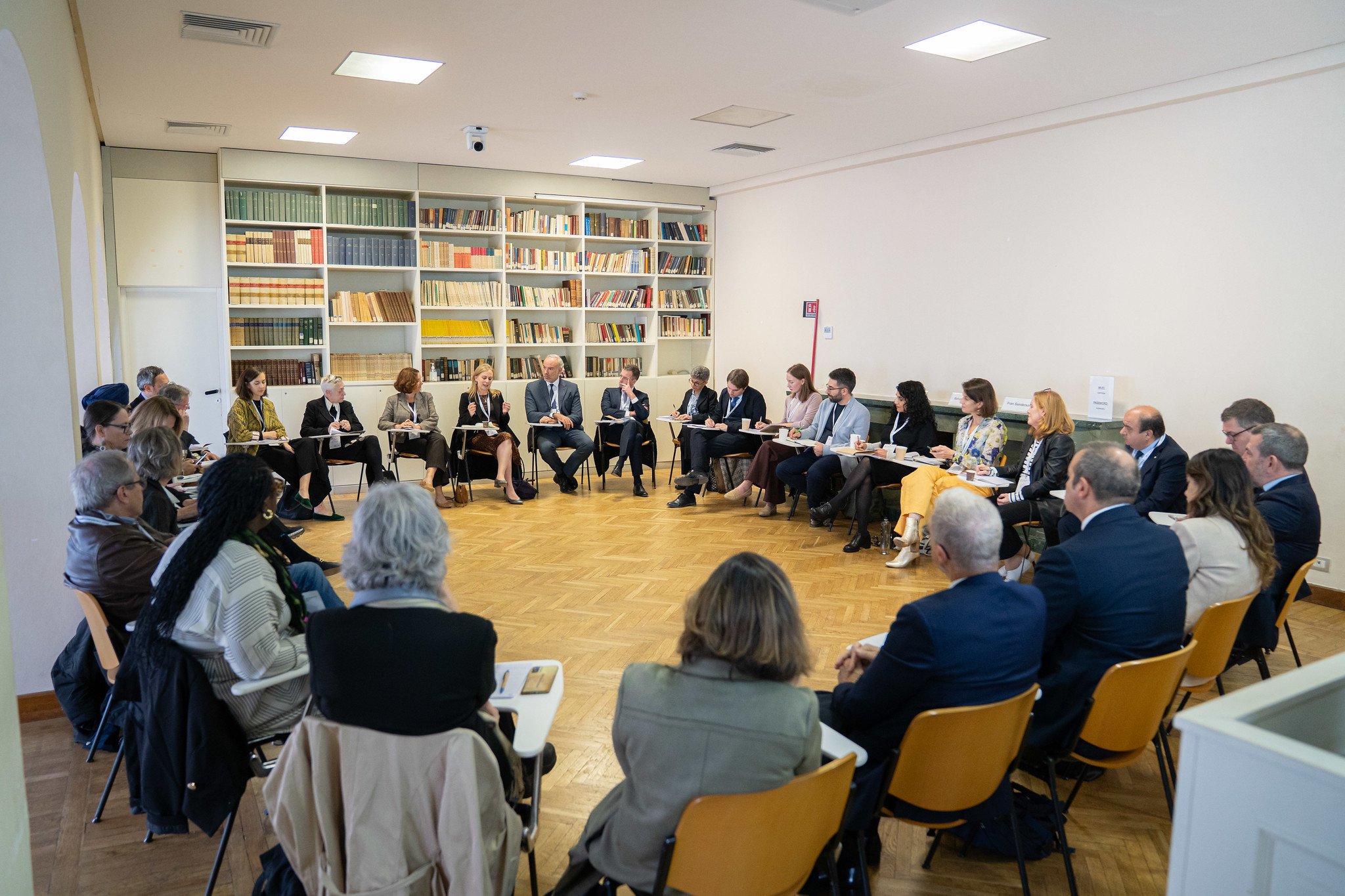Still riding the positive energy of Creative Skills Week 2025 (CSW2025), held in Prague from 22 to 26 September, we sought to continue the dialogue by engaging with some of the key figures behind this initiative. In this context, we hosted a conversation with Barbara Revelli from ELIA, alongside Katarzyna Sanojca and Kristýna Kočová from Creative Prague, to discuss the evolution, impact, and future trajectory of CSW. The discussion also examined how the event’s collaborative framework could serve as a model for broader European strategies in the fields of culture, creativity, and innovation, and how its spirit of cooperation might inspire future cultural policies and funding approaches across Europe.
From Competition to Collaboration
The conversation naturally turned to the origins of Creative Skills Week, which initially took shape as an event within the Blueprint project Cyanotypes and, with the support of the SACCORD project, quickly evolved into a vital meeting point addressing the most urgent need among creative professionals across Europe.
According to Barbara Revelli, the idea stemmed from a shared sense of frustration within the cultural sector which resulted in a persistent competition among EU-funded projects. “We realised that collaboration, rather than competition, could in fact make the cultural sector stronger,” she reflected. “To achieve this, we needed a shared platform where knowledge, experiences, and challenges could be exchanged openly.” Creative Skills Week was therefore conceived as a space deliberately designed to dismantle barriers between programmes and initiatives, a venue not merely for meetings, but for meaningful dialogue, mutual learning, and cross-pollination of ideas.
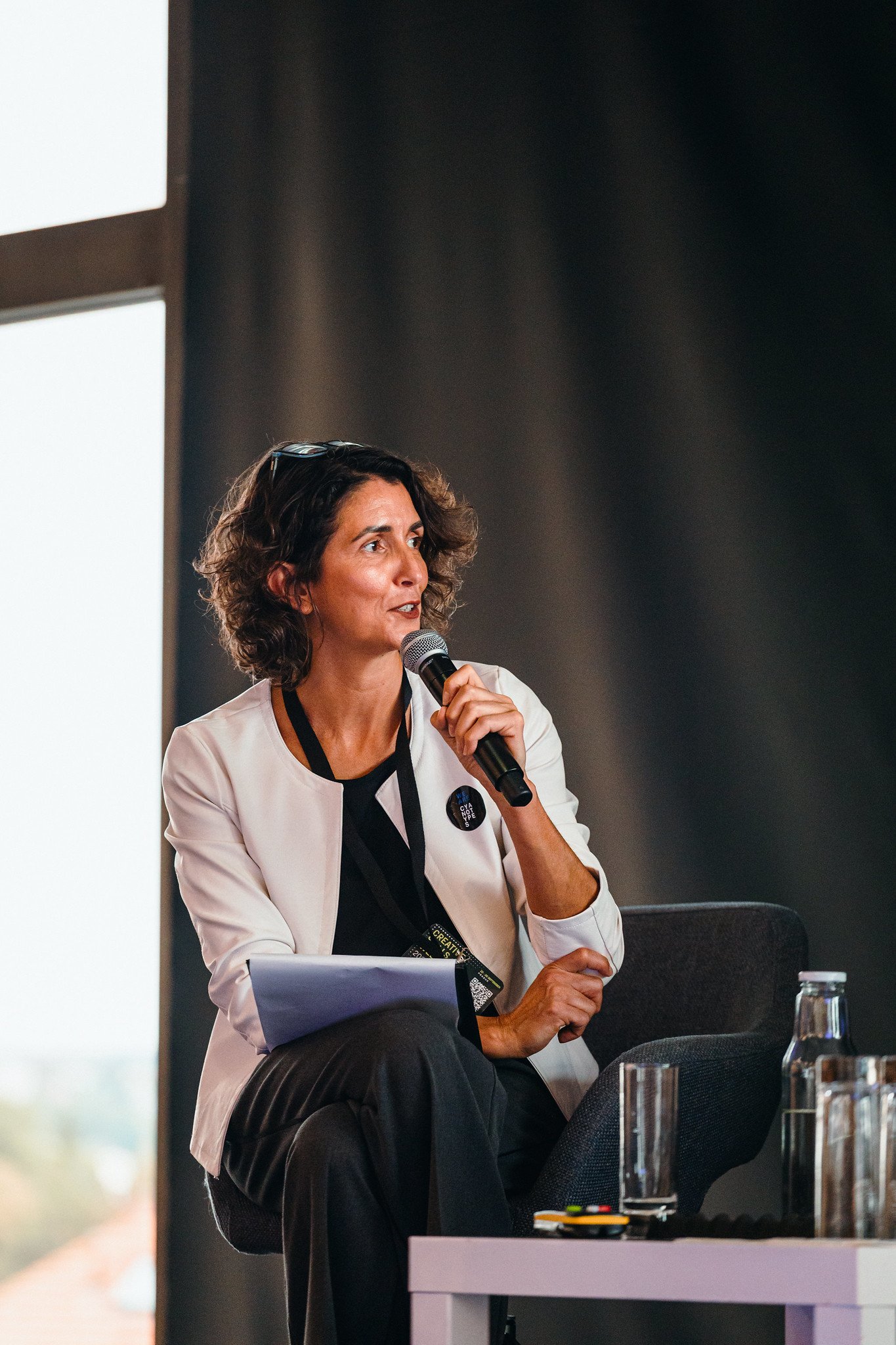
Despite limited resources, the three editions of Creative Skills Week have been driven by the strong human commitment of all its partners, their readiness to invest time, expertise, and energy in pursuit of a shared vision. From the very beginning, the need for such a platform was unmistakable. Katarzyna Sanojca recalled that during the Amsterdam edition, the existing gaps and the lack of moments to come together and reflect on the sector were already apparent: professionals needed a dedicated space to connect, exchange ideas, and collaborate.
By the time the event moved to Prague, that early intuition had been fully confirmed. Creative Skills Week had evolved beyond a simple meeting point, establishing itself as a reference hub for the cultural and creative industries, where collaboration and professional growth became tangible outcomes.
The significance of the event was further demonstrated by the strong commitment of its participants. Many organisations, including private ones, chose to self-finance their participation at the Cyanotype training, clearly underlining the importance they attributed to this opportunity. This early recognition of a shared need set the direction for the following editions, shaping the event’s evolution from a general gathering into a strategic, locally anchored platform capable of generating lasting impact.
Trust, Co-Creation, and Local Impact
Trust has been at the heart of Creative Skills Week’s success. “It enabled the sector to showcase its diversity, experiment openly, and resist the polarisation that can sometimes fragment cultural communities” as Barbara Revelli reflected. Yet this confidence was only one element of the equation. Equally crucial was the co-creation process: rather than following a top-down agenda, the content of CSW was developed collaboratively, step by step, with active input from participants. This participatory approach not only ensured that sessions addressed the sector’s real needs, but also fostered a strong sense of ownership and agency, making the event feel genuinely theirs.
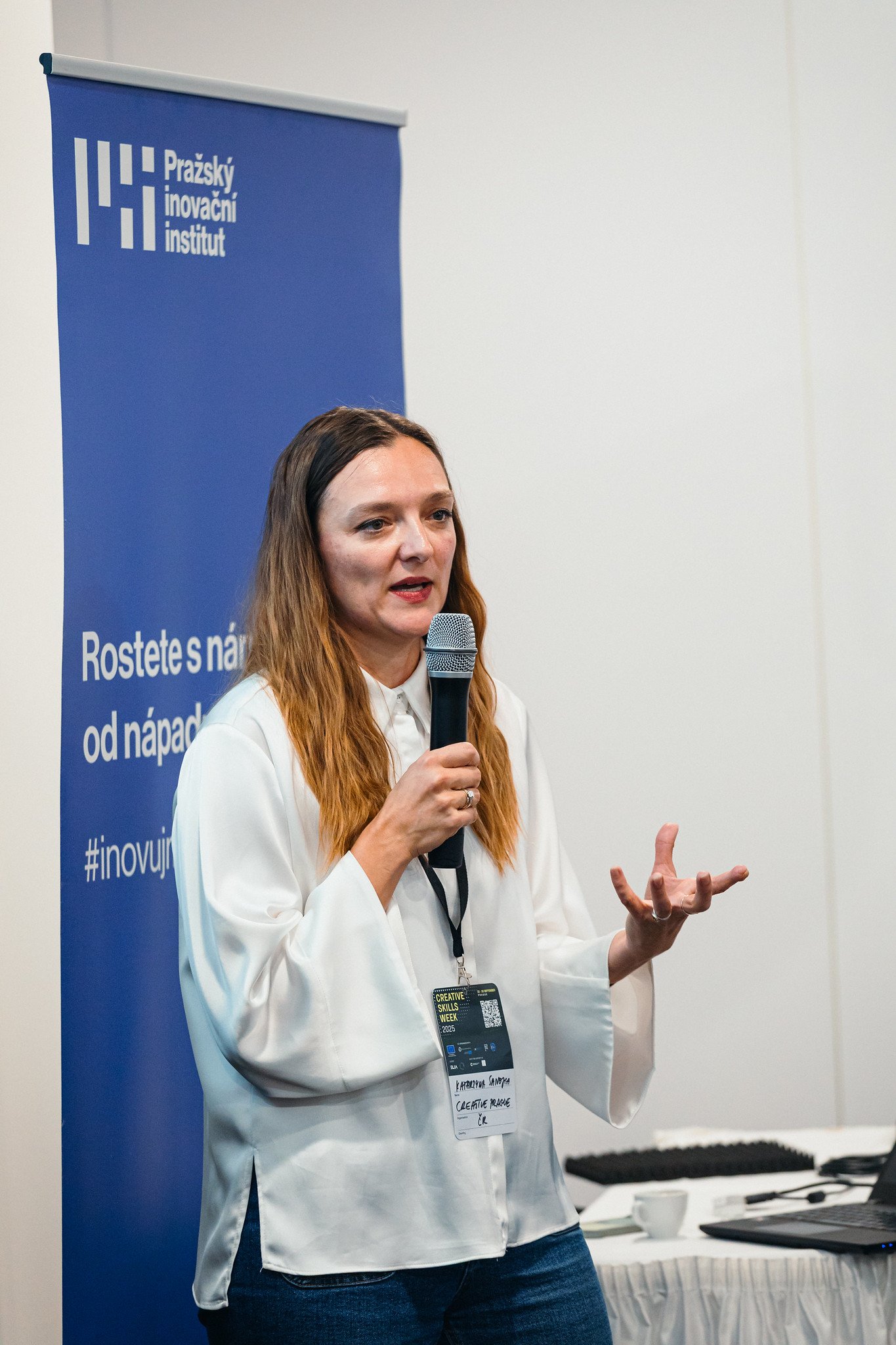
For the Prague edition, a deliberate local adaptation of the programme was introduced to engage more directly with the city’s creative community. The hosting organisation, Creative Prague, tailored the content to the local context by incorporating sessions in Czech, organising targeted workshops for emerging professionals, and addressing the specific challenges faced by the local cultural sector. These efforts not only deepened the connection with the host city but also ensured that the event resonated meaningfully at both the European and local levels, creating tangible value and lasting experiences for participants.
For Kristýna Kočová, one of the most significant outcomes was the way CSW helped local policymakers and administrators recognise the value of creative skills. By demonstrating how creativity drives social, educational, and economic development, the event directly influenced the shaping of Prague’s new cultural strategy, showing that cultural innovation can have both immediate and systemic impact.
From Local to European Scale
The Prague edition of Creative Skills Week represented a significant turning point, evolving from a broad, general gathering into a targeted action platform offering focused training sessions, thematic meetings, and numerous workshops on topics such as micro-credentials and higher education. As Kristýna Kočová observed, “We don’t need to replicate CSW in every capital. What we need is an ecosystem of interconnected networks and projects that can multiply the impact at a European level. This approach depends on finding the right partners who can translate local needs into European conversations, their ability to bridge the local and European spheres made the big themes tangible and actionable on the ground”.
At the heart of this strategy is a focus on skills as the core of change defined by the Cyanotypes Framework. These skills enable the creative sector to adapt, create, and respond to change, even in the face of emerging challenges like AI. Revelli added that resilience and creative thinking are not merely artistic qualities, but essential competences that can have an impact across all sectors. Initiatives such as CSW position culture as a vehicle for developing these capacities, extending their benefits beyond the arts and ensuring that the creative sector continues to play a central role in Europe’s social, economic, and technological landscape.
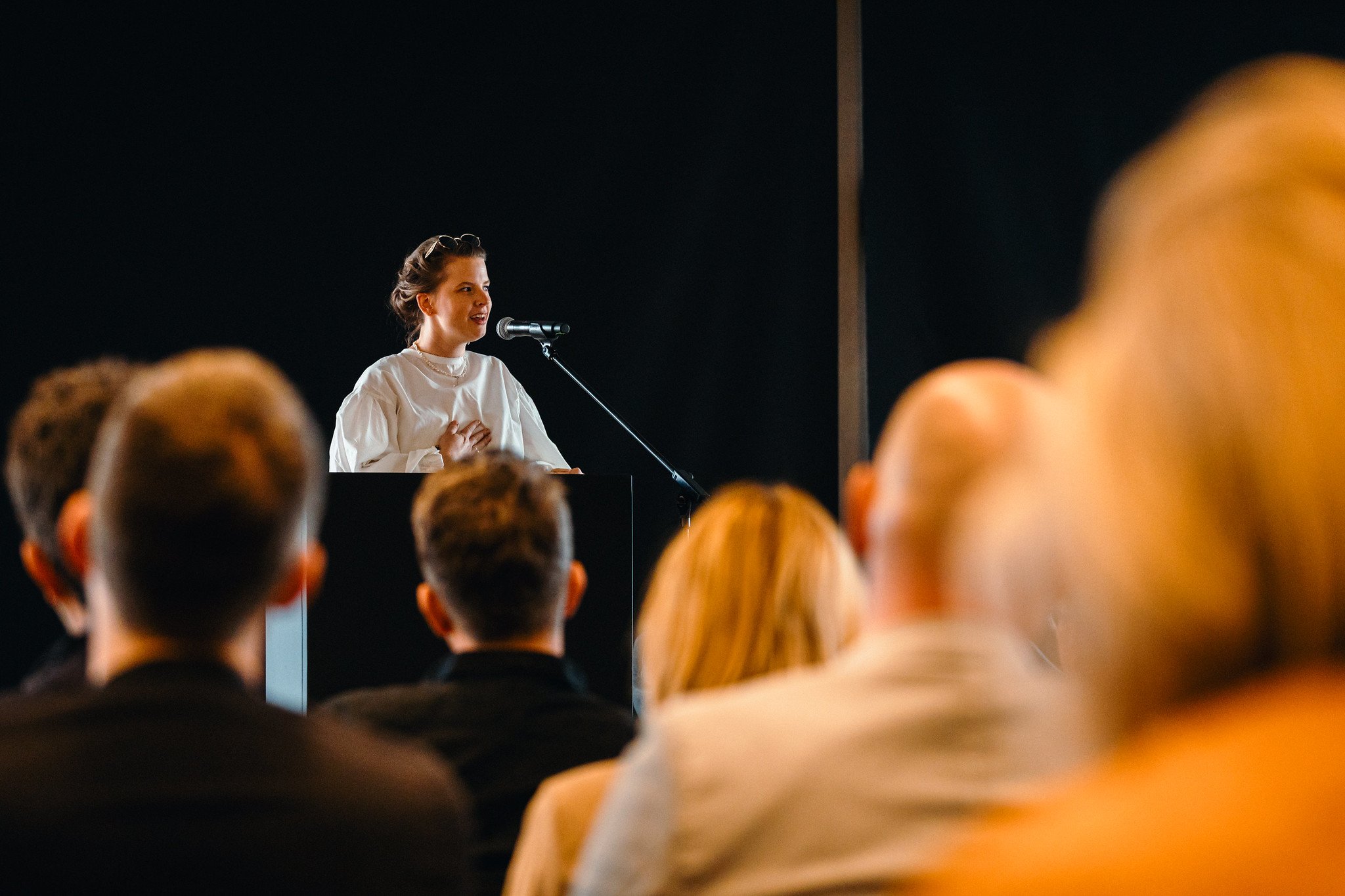
Challenges Ahead: Resources, Recognition, and Continuity
The impact of Creative Skills Week is already tangible. It has sparked new collaborations between creative enterprises and public institutions, fostered dialogue with ministries on shared micro-credential standards, and contributed to embedding creative skills into the Czech Republic’s national cultural strategy. As Kristýna Kočová observed, the engagement of individual participants has had a systemic ripple effect, with many former attendees now shaping cultural strategies across Europe.
Yet the future of CSW is not without challenges. Organising the event demands an extraordinary level of energy and commitment, far beyond what project funding alone can provide, as Barbara Revelli acknowledged. Nevertheless, the value of the platform is undeniable: it addresses a clear need for spaces that build trust, foster collaboration, and elevate the role of culture as both an economic and social driver.
Looking ahead, Creative Skills Week aims to continue nurturing this shared narrative, highlighting not only achievements, but also the people, skills, and connections that underpin cultural innovation. In doing so, it reinforces the centrality of collaboration and creativity within Europe’s cultural ecosystem, strengthening both its social and economic impact across the continent.


